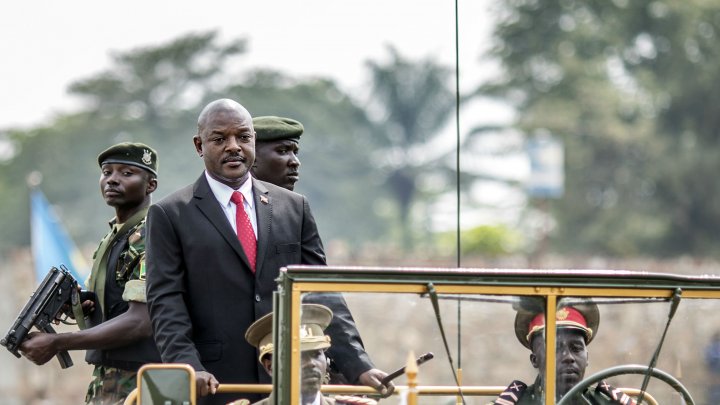Nkurunziza wins controversial 3rd term in Burundi
Burundi President Pierre Nkurunziza won a third term in office on Friday after the opposition boycotted the vote, a victory that leaves the east African nation politically divided and facing global isolation after months of unrest. In its report Braving Bullets – Excessive force in policing demonstrations in Burundi, the human rights group found that police used ‘excessive lethal force, including against women and children, to silence those opposed to President Nkurunziza’s bid for a third-term.
Nkurunziza was re-elected with 69.41 per cent of votes, Electoral Commission Chairman Pierre Claver Ndayicariye announced Friday.
Burundi’s main opposition leader Agathon Rwasa has called for a new election following incumbent President Pierre Nkurunziza’s victory in the recent presidential vote for a third consecutive term.
The African Union (AU) did not send observers – the first time such an action has been taken against a member state.
“The opposition does not accept and will never accept that these were credible elections”.
Nkurunziza came in first in Bujumbura, the stronghold of protests against him.
“The electoral process fell short of the principles and standards for holding free, fair, peaceful, transparent and credible elections”, observers from the regional body said in a statement, describing turnout as “low to average in most polling stations visited”.
Although eight candidates were on the ballot for the presidential poll, most had withdrawn from the race after the closure of most independent media prevented them from campaigning.
In May, Nkurunziza held onto the Burundian presidency after a failed coup attempt by an army general while Nkurunziza was in Tanzania.
In Addis Ababa, Burundi’s Foreign Minister Alan Nyamitwe dismissed worldwide criticism of the election, saying no one can disregard the choice made by the people of Burundi.
Tensions between Burundi’s ethnic Hutu majority – comprising some 85% of the 10.5 million population – and Tutsi minority have flared up regularly since independence from Belgium in 1962.
The opposition had also boycotted the June 29 parliamentary elections in which the ruling party won 77 out of 103 seats.








